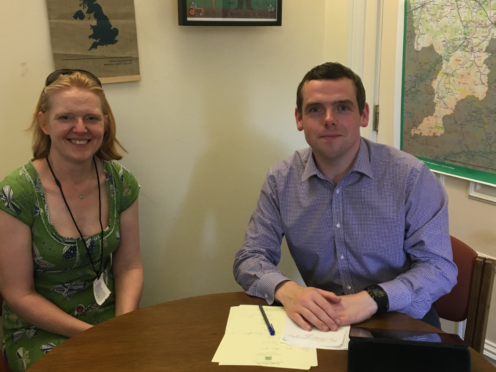An expert in road collisions has called for tighter restrictions on new drivers to help save lives across the north of Scotland.
Dr Sarah Jones from NHS Wales has carried out 10 years of research into crashes throughout Scotland and Wales and is championing the introduction of a Graduated Driving Licence (GDL) scheme north of the border.
With GDL, new motorists would face restrictions on the time of day they can drive and the number of passengers allowed in their cars.
During a discussion with Moray MP Douglas Ross this week, Dr Jones argued that Scotland and the rest of the UK should mirror similar restrictions on first-time drivers that are in place across the world.
The pair discussed how the rural nature of roads throughout the north-east and Highlands have resulted in some of the highest young driver collision rates in the UK – with 10% of all crashes involving a driver aged between 17 and 19.
Dr Jones said: “We are very unusual in the UK in that we don’t use GDL.
“It has been used in New Zealand since 1987. New York has had a night-time curfew for young drivers for more than 40 years. In fact almost every state in America has GDL.
“And when you look at the evidence, young drivers are more than six times more likely to crash than their parents. These are drivers aged 18 and 19.
“When we look at the evidence of where crashes are most likely to occur, we know that rural roads tend to come with a much higher risk.
“Realistically, these are roads that young people tend to go and test themselves on.
“It’s fun, it’s exciting, and for many young drivers it’s perhaps great to drive a long distance away from home.
“Of course we can’t re-engineer our entire rural road network as it’s cost prohibitive, and dictated by the topography and geography.
“The best way we can keep our young people safe is with GDL.”
Dr Jones and Mr Ross staged a lengthy discussion on the issue on social media, answering questions for over half-an-hour.
Mr Ross said: “There is overwhelming evidence that if a form of GDL was introduced in Scotland alone, lives would be saved and serious injuries prevented on our roads.
“I’ve always said this may not be the right solution, but surely it’s right that we discuss everything and anything that could save lives and reduce the number of collisions.”
